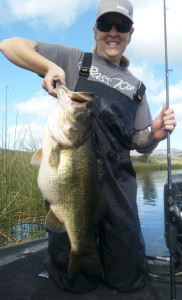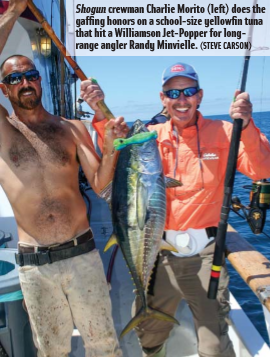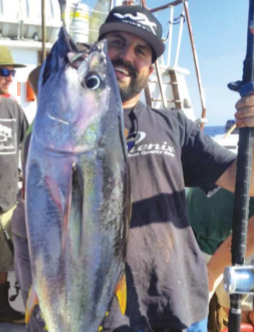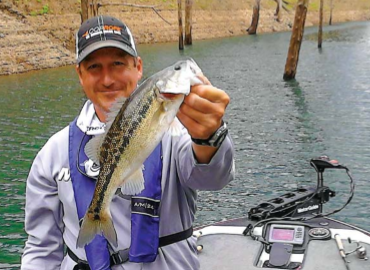Big Bass Are Lurking
WITH WATER TEMPS ON THE RISE, SOCAL LAKES ARE PRODUCING MASSIVE FISH
By Bill Schaefer
As spring approaches, it increases the chances of a trophy bass for your wall, with the males running the banks looking for a place to nest and the big females just waiting to move into the shallows.
Southern California is already putting out some giant bass, and lots of big largemouth seekers are already catching them, some on the record and some not. While most anglers tend to just post for a few friends on Facebook, they’re not officially recording the catch with the local lake’s staff. But the regular weekend warriors are scoring at some lakes as well and coming in with some massive specimens. Water temps are up at most lakes, which is starting to create the magic.
At the time of this writing, the largest bass on record is a 14.30-pound largemouth from Lake Otay in San Diego County. I talked with angler Ashley Hayden and she was thrilled with the catch.
“My dreams came true. I got to catch a 14-pound bass on a crawdad. The fight was fun and everything felt perfect,” she says. “I couldn’t ask for a better day!”
While crawdads are a staple of the bass and are great old-school bait, most trophy seekers are throwing swimbaits right now as we come out of winter into warmer weather. A lot of lakes plant trout during the winter or there are holdover fish from previous years that the giants eat up for a fast meal. Remember, the big mama bass need nourishment to lay their eggs and make it through the spawn during those times when they rarely eat.
Heading into spring there will be giants on beds and the baits that get them to bite will vary, but a lot of larger fish spawn out a little deeper and you cannot see them,
especially once the wind comes up. This is where having an assortment of swimbaits helps you out.
Once on a bed, the bass will protect it at all costs. Predators include other bass, bluegill and many other species that swim in the lake; all

are trying to eat those nutrient-rich eggs. Swimbaits come in all species now, so make sure you have a diverse assortment. Sometimes swimming a bluegill by a bed won’t work, but the first pass with a baby bass will trigger a reaction strike.
For tackle, a strong trigger stick and reel are key components. Most of all, make sure your drag is set correctly.
I like to use the Daiwa Lexa 300 with Maxima braid in the 50- to 60-pound range. A short fluorocarbon leader of 20 to 30 pounds will help. Tackle is as important as the baits, and just like your swimbait options, you should also have an assortment of actions and line size. You want that trophy in the boat, and as Hayden and others have discovered, the waters are teeming with giant bass.



